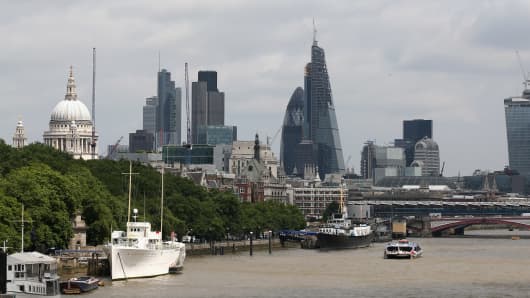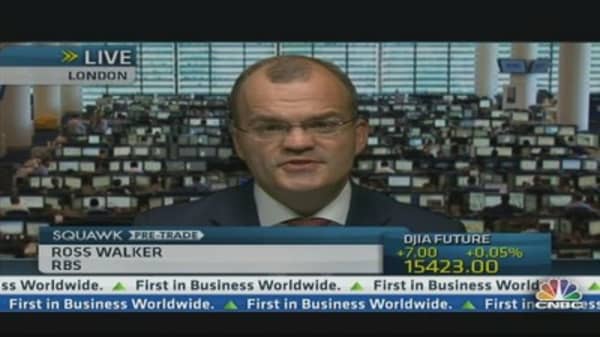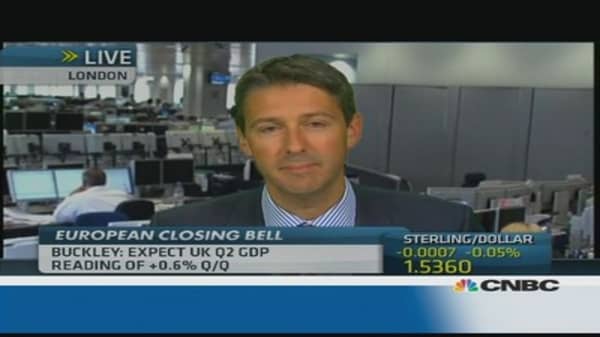U.K. economic growth is expected to have doubled in the second quarter of the year from the first, driven by a booming services sector, according to analysts - but some warned against cracking open the champagne just yet.
Analysts surveyed by CNBC forecast gross domestic product (GDP) growth of at least 0.6 percent in the second quarter. The official data, to be released on Thursday, follows expansion of 0.3 percent in the first three months of the year.
RBS U.K. economist Ross Walker said the services sector was driving growth in Britain. The purchasing managers' index data (PMI) for the sector showed activity at a 27-month high in June.
(Read more: Don't panic! UK recovery is 'firmly entrenched')
"The services PMI strengthened during the second quarter to above-trend levels," Walker said. "Previous pockets of weakness, such as retail sales, have either been revised away or subsequent data have strengthened."
Emily Nicol, an economist with Daiwa Capital Markets, also forecast growth of 0.6 percent, and said the dominance of the services sector was unexpected.
"The services sector is driving the growth, which has been slightly surprising really," she told CNBC, highlighting there have been no big services-led events – for example, the Olympics – to boost the sector.
Thursday's GDP figure follows a slew of positive data releases and business surveys for the U.K. which has led a number of organizations to upgrade their growth forecasts for the country. Last week, analysts said strong retail sales and employment data boded well for U.K. GDP. The Confederation of British Industry on Wednesday reported that manufacturers had seen a pick-up in activity in the second quarter, with new orders and production continuing to rise.






